Polycystic Kidney Disease Screening
Polycystic kidney disease screening. Ultrasonography is the procedure of choice in the workup of patients with autosomal dominant polycystic kidney disease ADPKD. Pirson Y Chauveau D Torres V. PKD also can cause other complications or problems such as high blood pressure cysts in the liver and problems with blood vessels in your brain and heart.
Intracranial aneurysm rupture is a dramatic complication of autosomal dominant polycystic kidney disease ADPKD. Your GP will measure your blood pressure to see whether its higher than normal. We evaluated this in a single-center cohort of 495 consecutive.
However screening of patients with secondary hypertension especially patients aged 20 to 34 years is mandatory with renal ultrasound. Nephrologists toward screening for ICA. ADPKD is the commonest inherited renal disease with an incidence of around 1 in 1000 and accounts for 5-7 of adults commencing renal replacement therapy 12.
Polycystic kidney disease screening Screening tests are available to relatives of a person with autosomal dominant polycystic kidney disease ADPKD. Kelleher CL McFann KK Johnson AM et al. MRA screening should be performed as early as possible once the diagnosis of ADPKD is made ideally around 20 years of age.
Patients with polycystic kidney disease would benefit from routine magnetic resonance angiographic screening for intracerebral aneurysms. A decision analysis Neurosurgery 1996. ADPKD is a common disease that mostly presents in adults whereas ARPKD is a rarer and often more severe form of polycystic kidney disease PKD.
The decision to have a screening test for ADPKD should be discussed with an experienced health care provider and should include a full discussion of the potential risks and benefits. Whether selective or widespread intracranial aneurysm screening is indicated remains controversial. Characteristics of hypertension in young adults with autosomal dominant polycystic kidney disease compared with the general US.
Autosomal dominant polycystic kidney disease ADPKD is a common disorder occurring in approximately 1 in 1000 live births. Background and objectives Intracranial aneurysm rupture is the most devastating complication of autosomal dominant polycystic kidney disease.
There is no evidence for screening in the general population.
With or at risk of developing Autosomal Dominant Polycystic Kidney Disease ADPKD. Autosomal dominant polycystic kidney disease Urine and blood tests. Management of cerebral aneurysms in autosomal dominant polycystic kidney disease. Background and objectives Intracranial aneurysm rupture is the most devastating complication of autosomal dominant polycystic kidney disease. Autosomal dominant polycystic kidney disease ADPKD is a common disorder occurring in approximately 1 in 1000 live births. There is no evidence for screening in the general population. MR angiography screening and surveillance for intracranial aneurysms in autosomal dominant polycystic kidney disease. Polycystic kidney disease screening Screening tests are available to relatives of a person with autosomal dominant polycystic kidney disease ADPKD. Autosomal dominant polycystic kidney disease ADPKD and autosomal recessive polycystic kidney disease ARPKD are cilia-related disorders and the two main forms of monogenic cystic kidney diseases.
ADPKD is a common disease that mostly presents in adults whereas ARPKD is a rarer and often more severe form of polycystic kidney disease PKD. Characteristics of hypertension in young adults with autosomal dominant polycystic kidney disease compared with the general US. You may not notice any symptoms until the cysts become numerous or. Autosomal dominant polycystic kidney disease ADPKD and autosomal recessive polycystic kidney disease ARPKD are cilia-related disorders and the two main forms of monogenic cystic kidney diseases. There is no evidence for screening in the general population. Kelleher CL McFann KK Johnson AM et al. It is estimated that less than one-half of these cases will be diagnosed during the patients lifetime as the disease is often clinically silent.









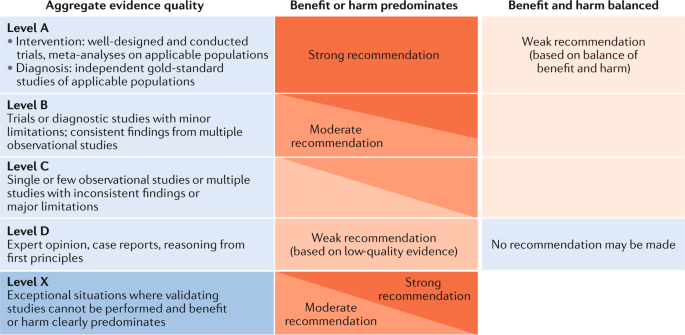






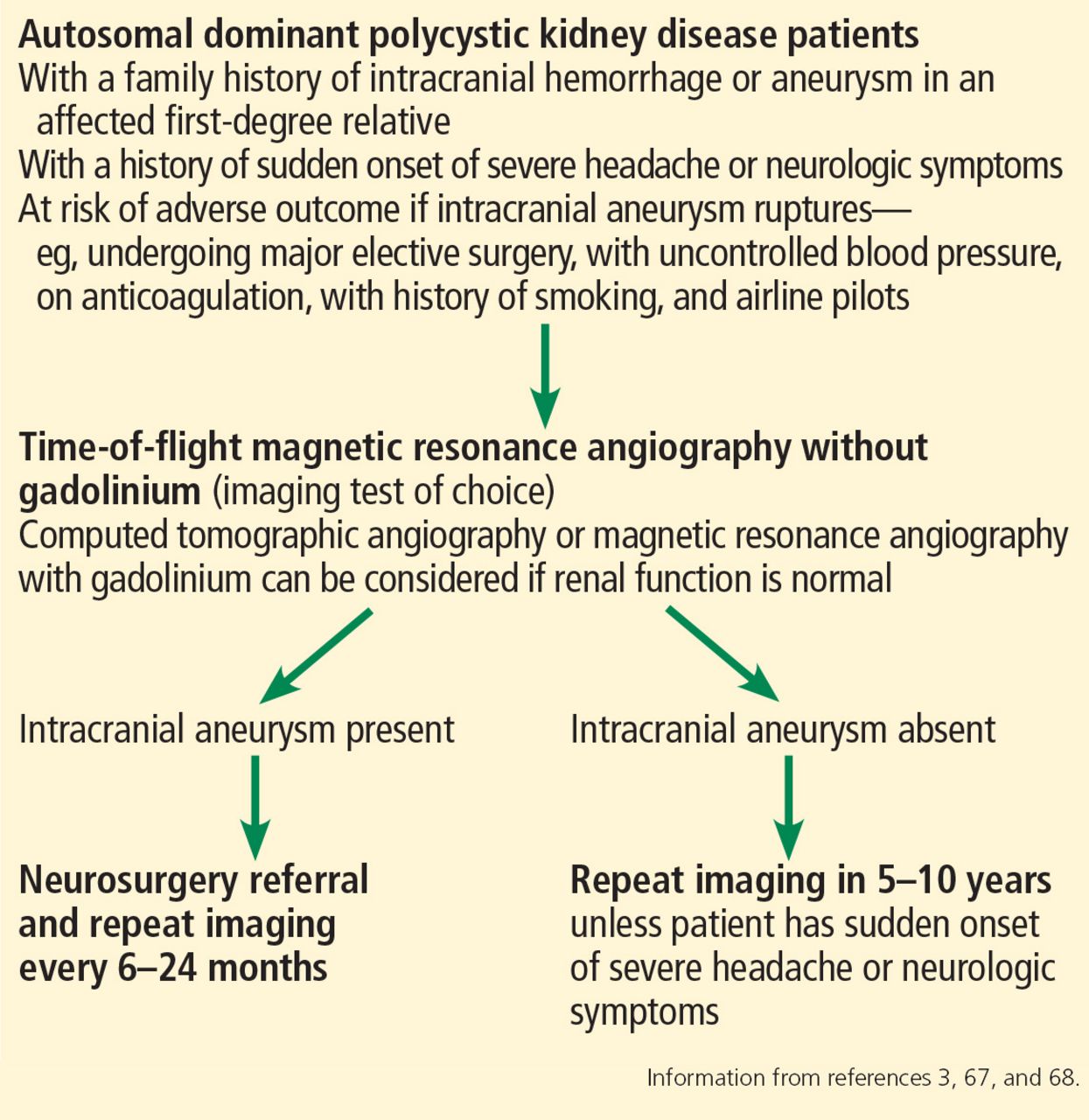

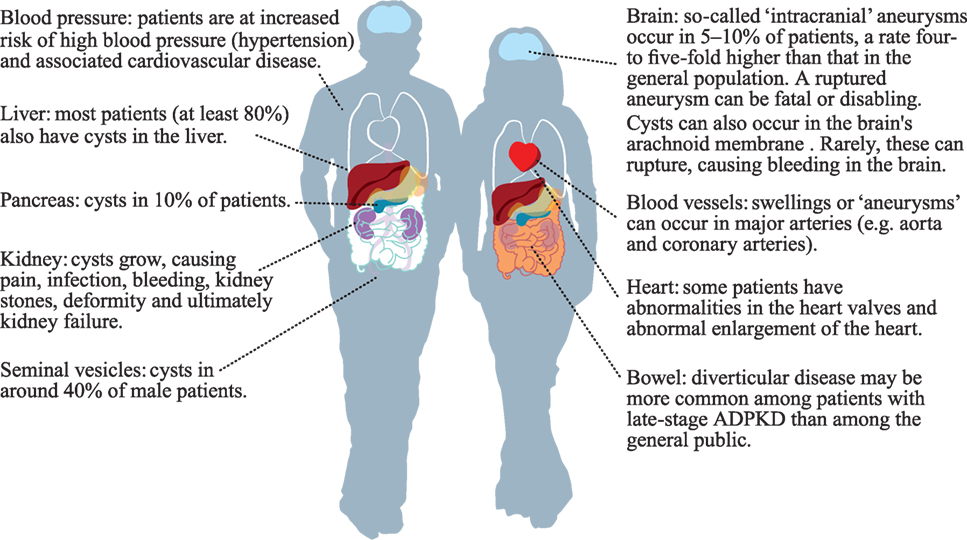
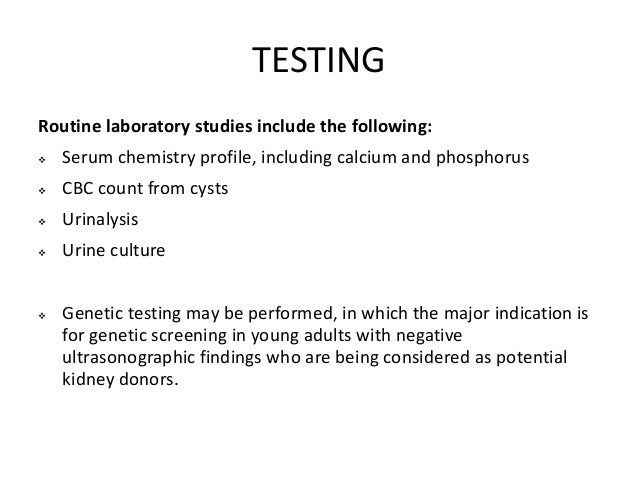







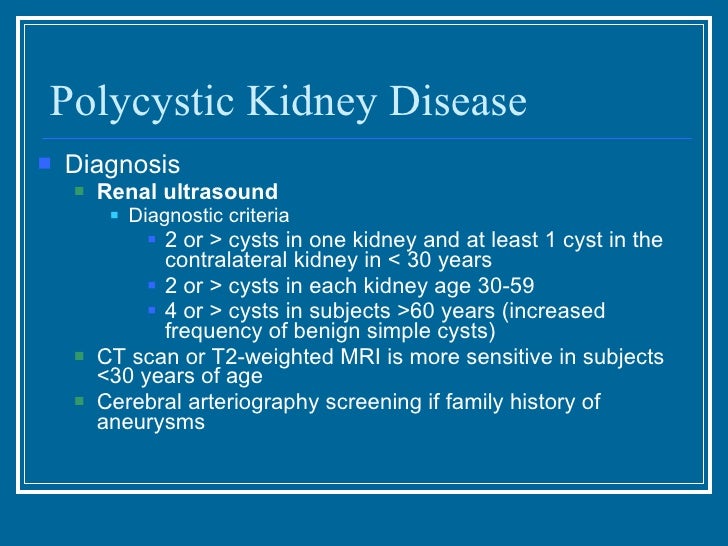







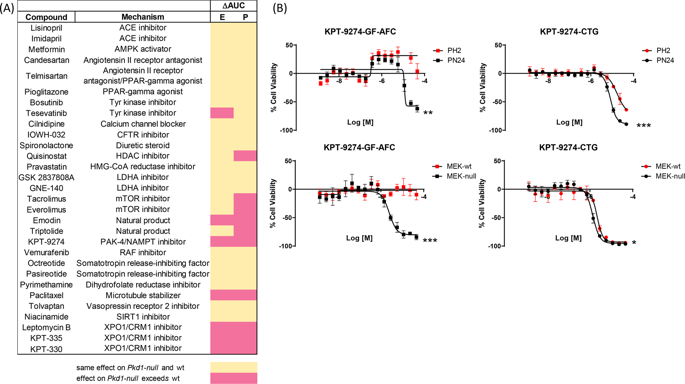



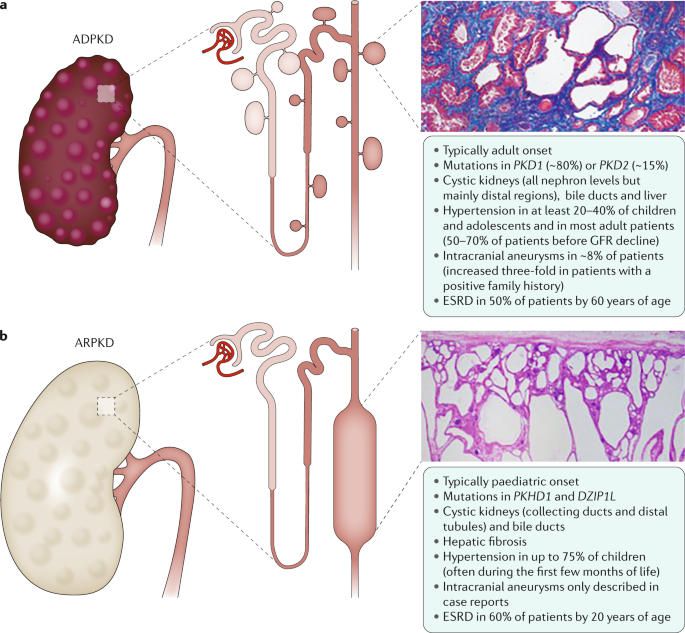


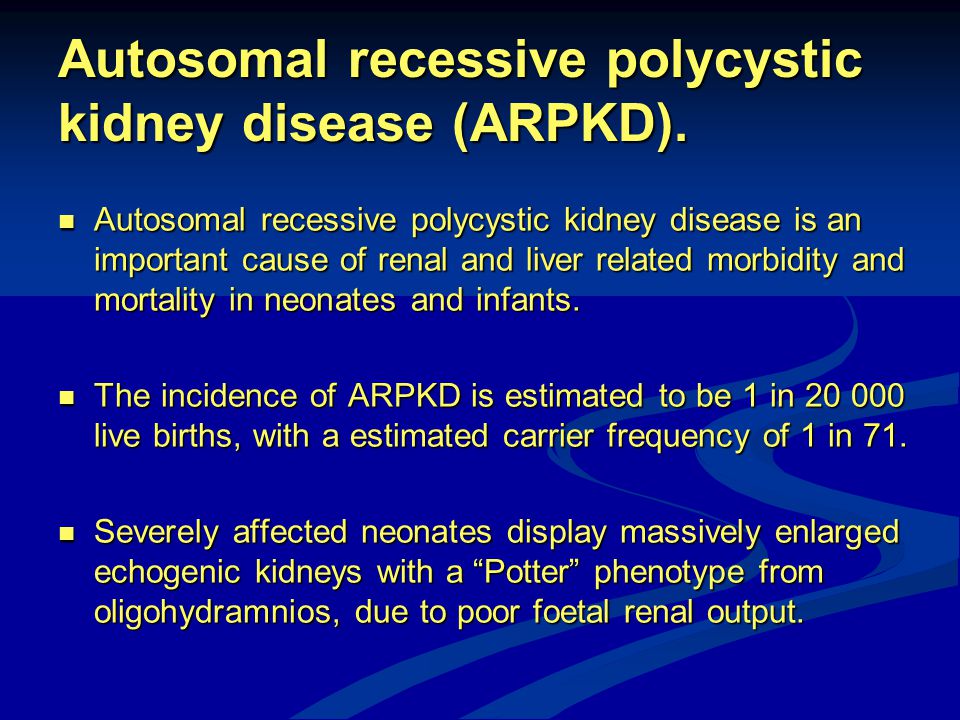


Post a Comment for "Polycystic Kidney Disease Screening"